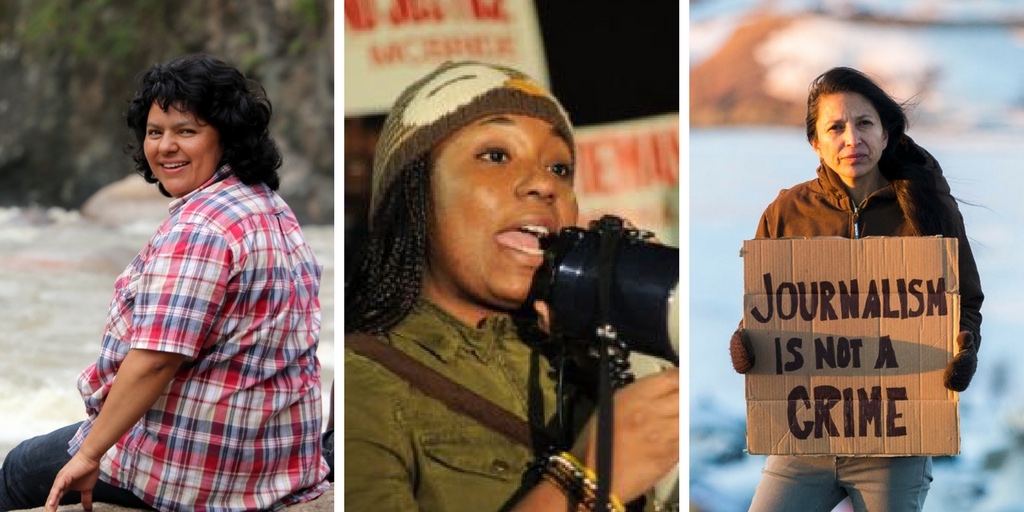
Each year, Earth Day gives us a moment to celebrate our movement and recommit ourselves to action. In a year marked by the #MeToo movement and renewed demands for women’s rights, the solidarity of women in the environmental movement continues to inspire me.
When women around the world speak out to defend the planet and our communities, we often risk our own personal safety and face retaliatory violence and intimidation. Sexism, often coupled with racism and other forms of bigotry, makes women frequent targets. That’s why I want to take a moment to recognize the work of three incredible women who refused to be silenced.
Berta Cáceres
Berta Cáceres was an indigenous activist from Honduras. She led the Lenca people in fighting the Agua Zarca Dam. The project would have dammed the sacred Gualcarque River, cutting off the supply of water, food and medicine for the Lenca people.
Cáceres co-founded the National Council of Popular and Indigenous Organizations of Honduras (COPINH) and was awarded the prestigious Goldman Prize in 2015.1 Her assassination in 2016 sparked international outrage and highlighted the dangers faced by environmental activists around the world.
Siwatu-Salama Ra
Siwatu-Salama Ra is an environmental justice advocate and Co-Director of the East Michigan Environmental Action Council (EMEAC) based in Detroit. She has helped build community power through environmental justice education, youth development, and collaborative relationship building.
Women like Siwatu do their work against the backdrop of a legal system that disproportionately oppresses people of color. In July 2017 an attacker threatened to strike Siwatu, her daughter and mother with a car. Siwatu showed her legal, permitted, unloaded handgun in an attempt to scare off the attacker. She did not fire the unloaded gun and no one was harmed.
Under Michigan’s Stand Your Ground law, Siwatu should have been protected against prosecution. Instead, she was unjustly arrested, tried and convicted.2 She is now seven months pregnant, facing the prospect of giving birth in prison while serving her two year sentence.
Jenni Monet
Jenni Monet is an independent journalist who writes extensively about Indigenous rights. In February 2017, Monet went to the Standing Rock Reservation in North Dakota to cover the Indigenous-led protests against the Dakota Access Pipeline. Monet was simply doing her job, covering the forcible removal of water protectors, when she was arrested in violation of her First Amendment rights.3
She was detained for more than a day before she was permitted to contact her lawyer and was held for more than 30 hours before her release. More than a year later, Monet still faces charges of criminal trespass and engaging in a riot. She’s one of about 10 journalists who were arrested at Standing Rock.
Act: Tell North Dakota officials to drop all charges against Monet.
Our movement is strong thanks to environmental defenders like Berta, Siwatu, and Jenni. Thank you for standing with these women and all women who take incredible risks to speak out for our planet.
Interested in other stories of women around the world standing up for environmental justice and human rights? Amnesty International maintains an extensive list of women human rights defenders on its Speak Out for Defenders website. Among those you’ll see profiled are the Cuninico and Espinar women who are fighting for clean water in the Amazon and Andes regions of Peru.
- Berta Cáceres, 2015 Goldman Prize Recipient South and Central America, Goldman Prize.
2. How a flawed criminal justice system put a pregnant Detroit activist behind bars, Detroit Metro Times.
3. Journalism and the First Amendment on Trial at Standing Rock, Yes! Magazine.
Jessica Olson is an Associate Campaign Representative for Sierra Club Gender Equity & Environment Program











































